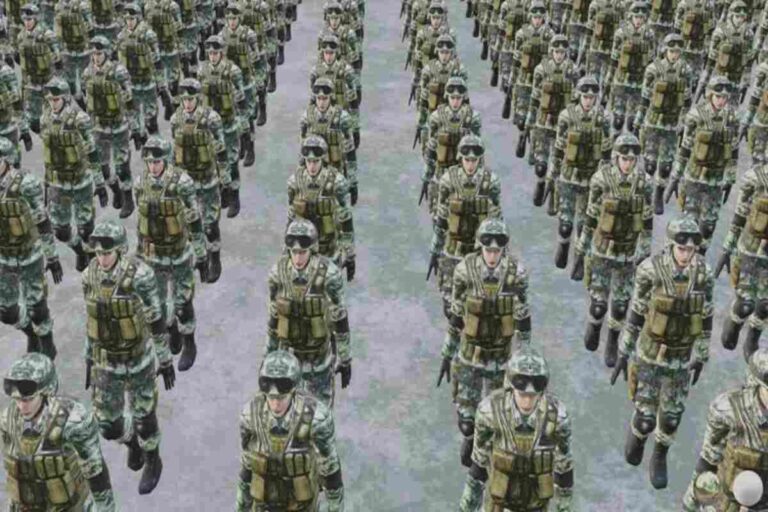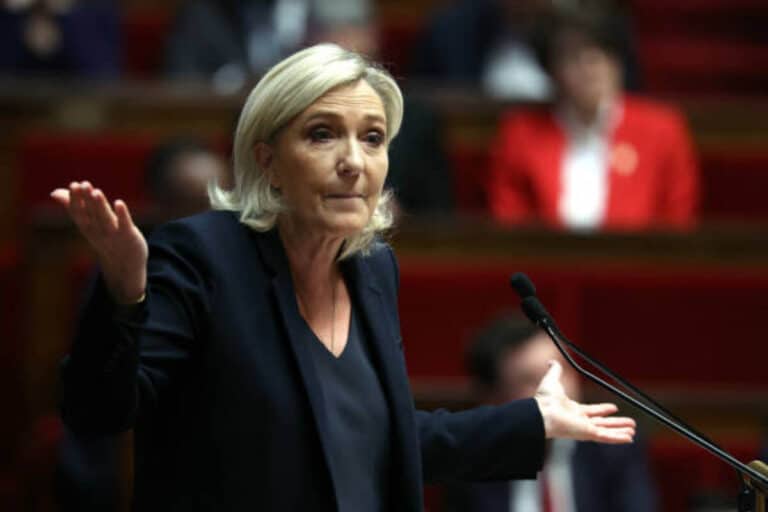

Israel secures hostage release in Gaza as pressure mounts over ceasefire negotiations.
(EPICSTORIAN) — Israel has identified three hostages set for release by Palestinian militants in Gaza on Saturday, marking the latest phase of a ceasefire deal facilitating ongoing swaps between Israeli hostages and Palestinian prisoners.
The hostages named are Sagui Dekel-Chen, an American-Israeli; Alexandre Troufanov, a Russian-Israeli; and Iair Horn, an Argentinian-Israeli.
Three Hostages Set to Return as Prisoner Swap Continues
Israeli authorities announced that the three men would be freed as part of the agreement, with Hamas’ Prisoner Media Office confirming that 369 Palestinian detainees will be released in exchange.
This follows previous exchanges where both sides have gradually fulfilled commitments outlined in the ceasefire deal.
Troufanov, 27, was abducted from Kibbutz Nir Oz on October 7, 2023, along with his grandmother, mother, and girlfriend.
His father was killed during the attack, while the rest of his family was freed in an earlier exchange. The Palestinian Islamic Jihad group, responsible for his captivity, had previously released footage showing him in detention.
Dekel-Chen, 35, was kidnapped while trying to defend Nir Oz from an incursion by Hamas fighters. His wife, Avital, was pregnant at the time. Their third daughter was born while he remained in captivity and recently celebrated her first birthday.
Horn, 46, was also taken from Nir Oz alongside his brother, Eitan, who remains in Hamas custody. Families of those still held captive continue advocating for their safe return.
Tensions Over Ceasefire Terms and U.S. Intervention
A dispute emerged earlier in the week when Hamas accused Israel of violating ceasefire terms and initially refused to proceed with the scheduled hostage release. The deadlock was resolved Thursday, allowing the exchange to move forward.
Former U.S. President Donald Trump weighed in on the situation, urging Israel to abandon the phased approach and demand the immediate return of all hostages. Israeli Prime Minister Benjamin Netanyahu acknowledged Trump’s remarks but stopped short of fully endorsing them.
“Hamas must return our hostages by Saturday noon, or the military will resume intense fighting until Hamas is completely defeated,” Netanyahu stated, leaving room for further developments.
Israeli government spokesperson David Mencer reinforced this position, declaring that failure to release three live hostages by the deadline would prompt “the end of the ceasefire and a full resumption of military operations in Gaza.”
Former Hostages Describe Conditions in Captivity
Recently freed hostages have begun sharing accounts of their time in detention. Former Israeli-American captive Keith Siegel, released two weeks ago, urged President Trump to take action.
“I was held for 484 days in unimaginable conditions, and every single day felt like it could be my last,” Siegel said in a video message. “President Trump, you are the reason I am home alive. Please bring them home.”
Another former hostage, Or Levy, visited Tel Aviv’s Hostages Square on Friday and stressed the urgency of securing more releases.
“I may be free, but I still have many brothers and sisters trapped in the hell of Gaza, and their time is running out,” Levy said.
Concerns Over Treatment of Hostages and Prisoners
The International Committee of the Red Cross (ICRC), which oversees these exchanges, expressed deep concern over the conditions faced by hostages in Gaza. A statement posted on social media emphasized the need for “immediate ICRC access to those still in captivity” and urged that releases be conducted in a “dignified and safe manner.”
Israeli officials have condemned the way Hamas has staged previous hostage releases, often parading captives in front of large crowds and armed fighters. The three Israeli men freed last week appeared weak and emaciated, a sight described by Israeli authorities as “shocking and unacceptable.”
Reports of mistreatment have surfaced on both sides. Some Palestinian detainees released by Israel claim they were subjected to psychological tactics before their release.
Former prisoner Rula Hassanein alleged that detainees were forced to watch Israeli propaganda videos for hours before being allowed to leave. The Israel Prison Service (IPS) denied any involvement in such practices.
Ceasefire Exchanges Continue Amid Uncertainty
To date, 16 out of 33 Israeli hostages and five Thai nationals slated for release under the current deal have returned home. Israel has freed 656 Palestinian prisoners from a list of nearly 2,000.
Also Read: Israel Accuses Palestinian Authority of Hiding Terror Payments Under New Scheme
The ceasefire remains in effect, though tensions persist over the terms of future exchanges. The next few days will determine whether negotiations hold or a new phase of military conflict begins.







